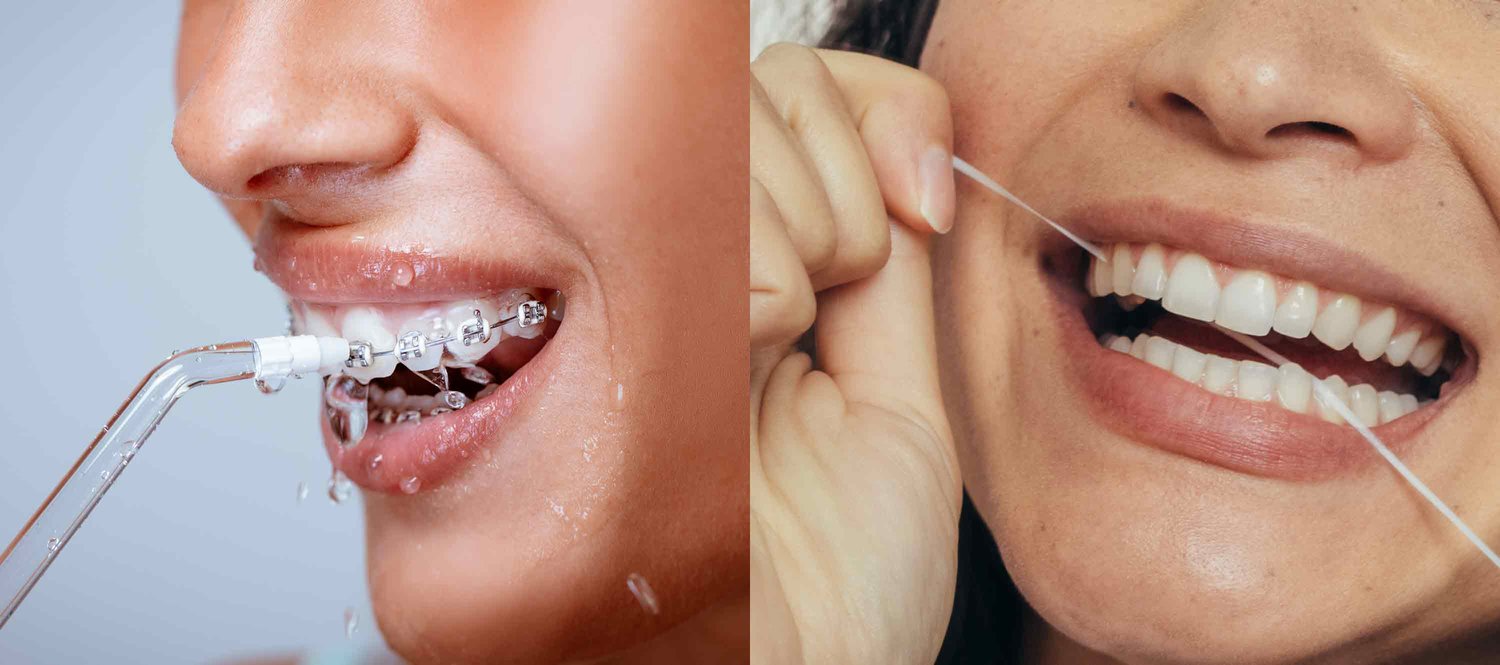Are Dental Flossers Better Than Traditional Floss? A Complete Comparison
Flossing is a crucial part of oral hygiene, yet it’s often overlooked or skipped altogether. If you’ve struggled with traditional string floss, you’re not alone—and that’s exactly where dental flossers come in. But are they actually better than the conventional method? In this blog, we’ll compare dental flossers and traditional floss side by side to help you make the right choice for your smile.
At The Dental Implant Practice, we educate our patients on practical, effective dental care tools that fit their lifestyle and support long-term oral health. Let’s explore the pros and cons of both flossing methods.
🧵 Traditional Floss: The Classic Method
Traditional floss involves using a thin nylon or Teflon string to manually clean between your teeth. It’s been the go-to method recommended by dentists for decades.
✅ Benefits:
- Highly effective at removing plaque and food debris.
- Inexpensive and widely available.
- Offers greater control over pressure and movement.
❌ Drawbacks:
- Can be tricky to use, especially for those with limited dexterity.
- May cause bleeding or discomfort if used incorrectly.
- Time-consuming for people with braces or dental work.
While traditional floss is still incredibly effective when used properly, it requires good technique and consistency—which many people struggle with.
🪥 Dental Flossers: The Modern Alternative
Dental flossers are handheld tools that come in two main types: floss picks and water flossers (also known as oral irrigators). Floss picks use a small piece of floss held in a plastic handle, while water flossers spray a targeted stream of water to clean between the teeth and along the gumline.
✅ Benefits:
- Easier to use, especially for children, seniors, or people with limited mobility.
- Faster and more convenient, encouraging better compliance.
- Water flossers are ideal for braces, bridges, and dental implants.
❌ Drawbacks:
- Floss picks can generate more plastic waste.
- Water flossers are more expensive and require electricity or batteries.
- Some users may not achieve the same level of plaque removal without proper guidance.
At The Dental Implant Practice, we often recommend dental flossers for patients who need a more accessible or comfortable alternative to string floss—especially those undergoing orthodontic treatment or recovering from implant surgery.
🧪 Which One Is More Effective?
The answer depends on your specific needs. For most people with healthy gums and no special dental conditions, traditional floss remains highly effective when used daily and correctly. However, for those with limited hand coordination, braces, implants, or gum sensitivity, dental flossers—especially water flossers—can be more practical and just as effective.
In fact, several studies show that water flossers may be more effective at reducing gingivitis and bleeding than string floss for some users, especially when combined with regular brushing and professional cleanings.
🦷 Flossing and Gum Health: Why It Matters More Than You Think
Flossing isn’t just about removing food stuck between your teeth—it’s one of the most important habits for preventing gum disease. Plaque that builds up between the teeth and below the gumline can harden into tartar and cause gingivitis, the earliest stage of gum disease. Left untreated, this can lead to periodontitis, tooth loss, and even impact your overall health. That’s why whether you choose dental flossers or traditional floss, staying consistent is the key. At The Dental Implant Practice, we emphasize gum health as part of every patient’s oral care plan and help you find the right tools to protect it.
💧 Water Flossers: A Game-Changer for Sensitive Gums
For patients with sensitive gums, receding gumlines, or dental restorations like bridges and implants, water flossers offer a gentle yet effective solution. These devices use a pulsating stream of water to flush out food particles and bacteria from between teeth and under the gums—without the friction that traditional floss causes. Many patients report that water flossing feels more comfortable and even therapeutic. At The Dental Implant Practice, we often recommend water flossers for post-surgical care and for those undergoing periodontal treatment.
🌿 Choosing What Works Best for You
There’s no universal answer to whether dental flossers are better than traditional floss—it truly depends on your preferences, needs, and lifestyle. Some people may benefit from a hybrid approach, using floss picks on the go and a water flosser at home. The key is to choose a method that you’ll use daily and correctly. Our team at The Dental Implant Practice can guide you through proper technique and product selection, ensuring your flossing routine supports your overall oral health goals.
🏥 Professional Advice Matters
Ultimately, the best flossing method is the one you’ll actually use consistently. At The Dental Implant Practice, we help you find the right oral hygiene routine based on your unique dental condition, lifestyle, and preferences. Whether you choose dental flossers, traditional floss, or a combination of both, our team is here to guide you toward a healthier, cleaner smile.
📅 Visit The Dental Implant Practice Today
Flossing may seem like a small habit, but it has a huge impact on your long-term oral health. If you’re unsure which method is right for you, or if you’re dealing with bleeding gums, plaque buildup, or sensitive teeth, we’re here to help.
👉 Book an appointment today at The Dental Implant Practice and get personalized advice, preventive care, and expert treatment—all under one roof.
For More Blogs : Visit













